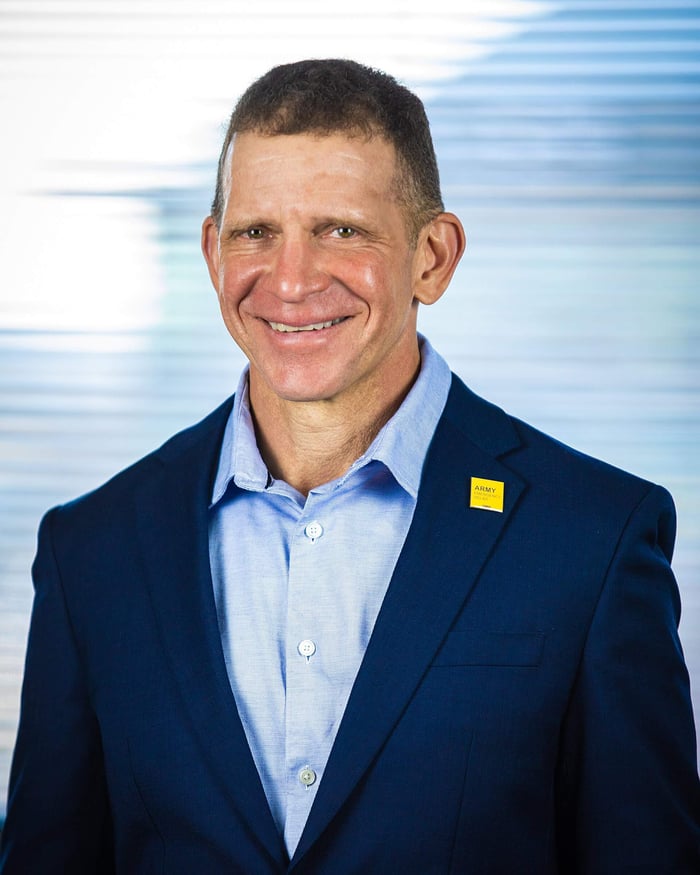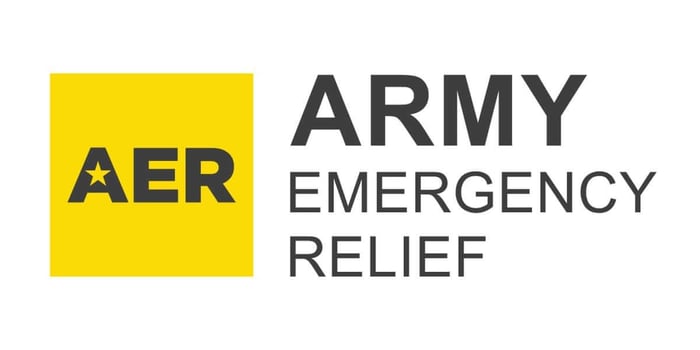Empowering Soldiers Through Transition: The Vital Work of Army Emergency Relief
Continuing the Mission: From SMA to CEO of Army Emergency Relief
For many service members, transitioning out of the military is a period filled with uncertainty, especially when it comes to financial stability and career direction. But for Tony Grinston, former 16th Sergeant Major of the Army, the journey didn’t end with his retirement. Instead, it evolved into a new form of service—leading Army Emergency Relief (AER), the Army’s nonprofit organization that provides crucial financial support to soldiers and their families.
In a heartfelt episode of the VET S.O.S. Podcast, Tony Grinston discusses his personal transition, the lessons learned throughout his military career, and how Army Emergency Relief is actively making a difference in the lives of tens of thousands of service members every year.
Breaking Stereotypes: Transition Isn’t Effortless
 Tony Grinston
Tony GrinstonAlthough Grinston held one of the most senior enlisted positions in the U.S. Army, his transition wasn’t automatic or guaranteed to be smooth. “I wanted to do something bigger than being the Sergeant Major of the Army,” he shared. “I wanted to keep growing, to stretch myself beyond what people thought I could do.”
After applying for several high-level roles in the civilian sector—many of which had never seen enlisted candidates before—Grinston faced rejection. And he welcomed it. “Getting told no was nothing new,” he said. “What mattered was pushing my boundaries.”
Eventually, he stepped into a role that perfectly aligned with his passion for service—CEO of Army Emergency Relief. In this position, he could continue helping soldiers while learning the complexities of running a large nonprofit.
What Is Army Emergency Relief?
 Army Emergency Relief is not just another veteran organization—it’s the official nonprofit of the United States Army. Founded to assist soldiers with financial challenges, AER offers zero-interest loans, grants, scholarships, and other forms of support to active-duty soldiers, Guard and Reserve members, retirees, and their families.
Army Emergency Relief is not just another veteran organization—it’s the official nonprofit of the United States Army. Founded to assist soldiers with financial challenges, AER offers zero-interest loans, grants, scholarships, and other forms of support to active-duty soldiers, Guard and Reserve members, retirees, and their families.
Tony Grinston emphasized that AER is deeply embedded in the Army’s structure. “It’s regulated by AR 930-4. The Army’s top leaders, including the Vice Chief of Staff and Sergeant Major of the Army, sit on our board,” he explained. “We’re part of the Army—not outside it.”
Each year, AER helps over 35,000 soldiers and families with:
Emergency travel assistance
Childcare and healthcare support
PCS-related housing deposits
Scholarships for military spouses and dependents
Transition support via the Career Skills Program
Career Skills Program: Building a Bridge to Civilian Life
Among the many programs offered by AER, the Career Skills Program (CSP) stands out for its direct impact on transitioning soldiers. This initiative provides financial assistance to those preparing for civilian employment, often through SkillBridge internships or off-base training opportunities.
Host Shawn Welsh, a military veteran himself, shared how this program helped him personally during his transition. “It took care of some of the costs I didn’t even think about—travel, lodging, even basic supplies,” he said.
The Career Skills Program offers:
$500 grants for E-4 and below
$250 grants for E-5
Travel-related assistance for soldiers attending off-base or overseas internships
Grinston added that while CSP funding had to be slightly reduced due to its popularity, AER remains committed to keeping it available. “We have to manage donations carefully, but we know this program is critical,” he said.
The Power of Veteran Leadership in the Civilian Workforce
Grinston didn’t just bring leadership experience to Army Emergency Relief—he brought a perspective employers often miss. As someone who reviews resumes, he recalled hiring a Chief Operating Officer and choosing a former infantry officer over a Harvard Law graduate.
“On paper, the Harvard grad looks like the obvious choice,” he said. “But I understood the real-world leadership and adaptability that comes from military service. That’s something many hiring managers miss.”
He encourages civilian organizations to bring in HR professionals with military backgrounds to properly evaluate veteran resumes. “Having someone who can translate that experience is a game changer,” he said.
Common Misconceptions About Army Emergency Relief
One of the most surprising challenges AER faces is awareness. Despite its long history and wide reach, many soldiers still don’t know what AER does—or they have outdated or negative perceptions.
“When I talk to soldiers at formations or motor pools, I always hear, ‘I didn’t know you helped with that,’” said Grinston. “They assume we’re just looking for donations, but we’re here to give, not take.”
From covering emergency flights home after a family loss to helping with unpaid TRICARE bills, AER offers programs that can significantly ease a soldier’s financial burden.
Grinston and his team are actively working to expand outreach, including developing new family-specific materials to help spouses advocate for their households. “Spouses often manage the family finances, but unless the service member applies, we can’t move forward on most programs,” he noted.
How to Apply for Army Emergency Relief Support
Accessing assistance from Army Emergency Relief is easier than ever with their new online portal. Service members can go to www.armyemergencyrelief.org and fill out the application directly.
While spouses can help guide the process, most programs still require the service member’s involvement—especially if the support includes loans or payroll allotments. One exception is the domestic violence support program, which is 100% grant-based and allows spouses to apply independently.
Grinston encourages anyone facing financial hardship not to wait. “Don’t go through it alone. We have the tools and funding to help you—use them.”
A Personal Connection to the Mission
Tony Grinston’s connection to Army Emergency Relief isn’t just professional—it’s personal. His wife received an AER scholarship years ago while he was a young Sergeant First Class. “We were direct beneficiaries of AER’s generosity,” he said. “Now I get to give back every single day.”
Co-host Dr. Hira pointed out the powerful message in Grinston’s journey: “You’ve shown that it’s okay not to know everything when you transition—but it’s not okay to stop growing. You kept going, and now you’re leading an organization that’s changing lives.”
Final Thoughts: Leading with Purpose
As the CEO of Army Emergency Relief, Tony Grinston is leading with heart, humility, and experience. His message is clear: soldiers don’t have to face financial hardship alone. Whether it’s through CSP transition grants, emergency travel funds, or rent deposit assistance, AER provides the critical support needed to stay mission-ready in life’s toughest moments.
His final advice: “Take advantage of the programs available to you. And if you’re in a position to help others, make sure they know about Army Emergency Relief too. Awareness is our biggest challenge.”
Need assistance or want to learn more?
👉 Visit: www.armyemergencyrelief.org
📧 Contact Tony directly: [email protected]





